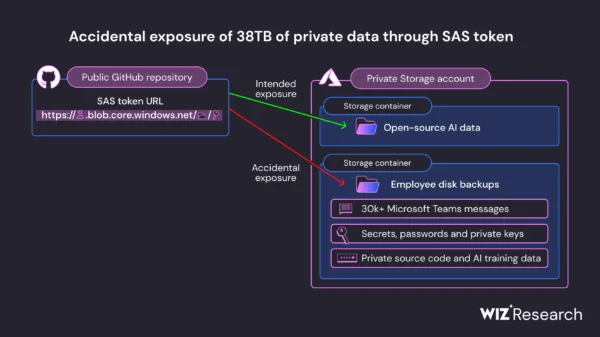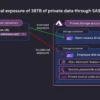Cloudflare on Monday announced a series of new security products that leverage AI, protect AI solutions, or defend against AI-enhanced phishing.
To improve its customers’ analytics abilities, Cloudflare introduced an AI assistant in the Security Analytics section of its dashboard, to help identify anomalies and cyberattacks faster by eliminating the complexity of using multiple tools and filters.
The assistant leverages Cloudflare’s Workers AI to generate charts based on customer queries by applying filters and pooling the necessary data and logs in a single graph.
With the new AI assistant, the company says, customers can use natural language to get insights into their application security, such as spikes in traffic, the root cause of 5xx errors, identify bot attacks and unwanted automated traffic, and more.
Currently available in beta for Cloudflare’s business and enterprise customers, the solution only supports basic inquiries.
Another AI-powered solution that Cloudflare uses to improve security products is Defensive AI, a framework that leverages data generated by its network to improve protections against threats, including against AI-powered attacks.
“At Cloudflare, we use AI to increase the level of protection across all security areas, ranging from application security to email security and our Zero Trust platform. This includes creating customized protection for every customer for API or email security, or using our huge amount of attack data to train models to detect application attacks that haven’t been discovered yet,” the company says.
To protect APIs, Cloudflare is building API Anomaly Detection for API Gateway, which leverages ML to learn the business logic of applications and builds a model that it then uses to identify attacks. Customers can now sign up for the beta release of API Anomaly Detection.
Cloudflare products such as Web Application Firewall (WAF), Email Security service, and Zero Trust rely on AI to identify cyberattacks, analyze phishing patterns, and identify anomalies in user behavior to create user risk scoring.
AI, however, is also being used to conduct cyberattacks, not only prevent them, especially in phishing, where generative AI solutions and LLMs have led to more personalized lures being delivered to potential victims.
According to Cloudflare, however, despite threat actors’ change in techniques, its preemptive scanning approach to detecting malicious emails allows it to keep customers and users protected.
“Even though the use of LLMs is a tool that attackers are deploying more frequently today, there will be others in the future, and we will be able to defend our customers from those threats as well,” Cloudflare says.
On Monday, Cloudflare also announced Firewall for AI, a solution meant to protect LLMs by detecting vulnerabilities, analyzing prompts submitted by users to identify potential abuse attempts, preventing denial of service attempts, and identifying sensitive information returned by the model.
Firewall for AI includes a series of tools already available in WAF, such as Rate Limiting and Sensitive Data Detection, along with a prompt validation feature meant to identify abuses such as prompt injection attempts, which is still under development.
“This new validation analyzes the prompt submitted by the end user to identify attempts to exploit the model to extract data and other abuse attempts. Leveraging the size of Cloudflare network, Firewall for AI runs as close to the user as possible, allowing us to identify attacks early and protect both end user and models from abuses and attacks,” the company says.
The Advanced Rate Limiting and Sensitive Data Detection features are already available for Cloudflare’s enterprise customers on the Application Security Advanced offering. Firewall for AI’s prompt validation feature will be released for all Workers AI users in the coming months.
Related: Cloudflare Users Exposed to Attacks Launched From Within Cloudflare: Researchers
Related: Cloudflare Unveils New Secrets Management Solution
Related: Cloudflare Announces New Security Tools for Email, Applications, APIs















